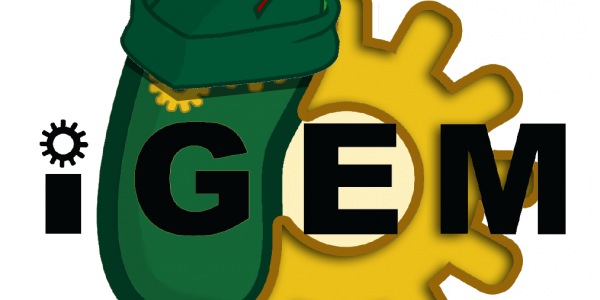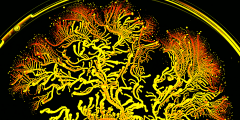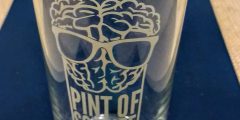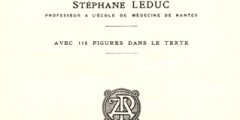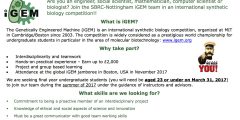Turning bacteria into passwords
September 15, 2017
A few days ago, I had the pleasure to meet two enthusiastic members of the first Nottingham iGEM team: Vikram Chhapwale, who specialises in computer science and AI, and Chris Graham, an emerging expert in biochemistry and genetics. Both are undergraduates studying at the University of Nottingham. Chris and Vikram are part of a seven-member …
Bacteria, scientists and stewardship
July 7, 2017
Bacteria have fascinated scientists for centuries and still do. One of the first to see bacteria under the microscope was “probably the Dutch naturalist Antonie van Leeuwenhoek, who in 1683 described some animalcules, as they were then called, in water, saliva, and other substances” (Encyclopaedia Britannica). A modern understanding of bacteria developed in the 19th century. Ferdinand …
Science, art and pints
May 20, 2017
For the first time in my life I participated in ‘Pint of Science’ this year. This festival of science engagement takes place on three days in May in pubs all around the globe, including 26 cities in the UK, such as Nottingham. Over a drink, scientists present and discuss their latest research and findings and …
Hybrids and chimeras: Mythology, history and science
February 3, 2017
Last week two papers were published about human and other chimeras, one in Cell on ‘Interspecies chimerism with mammalian pluripotent stem cells’ and one in Nature entitled ‘Interspecies organogenesis generates autologous functional islets’. The first one caused a bit of a stir in the newspapers. About 70 newspaper articles covered this potential scientific breakthrough in All …
Making Science Public: 2016 blog round-up
December 19, 2016
This has been a weird and momentous year. For me personally and, even more so, for the world. In June this year we celebrated the almost end of the Making Science Public programme, which I directed between 2012 and 2016. At the end of September I retired, after working for more than 25 years at the University …
Origins of life; origins of synthetic biology
December 9, 2016
I was sitting on a train to London the other day reading a fascinating article on the early history of synthetic biology. In this post I just want to share some interesting insights I gleaned from that paper, as it’s always a good thing to know a bit more about the history of a field …
iGEM comes to Nottingham
October 9, 2016
I recently mentioned the ‘word’ iGEM when chatting with a ‘lay’ person about synthetic biology; whereupon the lay person looked at me quizzically and wondered what an iGEM was. Was it like an iPhone, but for gems? Somebody who overheard this exchange chipped in with a comment that made us all laugh. He said that …
CRISPR – and the race is on (again)
July 25, 2016
At the weekend I was reading an article in the Guardian about a team of Chinese scientists trying to use CRISPR/gene editing for the treatment of cancer; and I sighed. The article contained some of the standard and, I believe, quite worn-out tropes that pepper coverage of advances in biotechnology: playing God, designer babies…, as …
Assembling a synthetic human genome: Science and the politics of openness
May 18, 2016
There has recently been some commotion in the field of synthetic biology about a meeting held at Harvard on 10 May 2016 at which scientists discussed the creation of a synthetic human genome. The meeting was a closed, invitation-only meeting. In a field of science that takes pride in its openness and transparency, this created …

